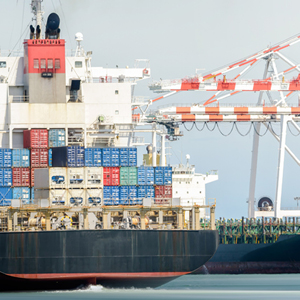This website uses cookies so that we can provide you with the best user experience possible. Cookie information is stored in your browser and performs functions such as recognising you when you return to our website and helping our team to understand which sections of the website you find most interesting and useful.
News
VI Working to Solve Short-and Long-term Shipping Problems
On November 15, the VI joined a coalition of 58 other national trade associations in sending a letter to Dan Maffei, Chairman of the U.S. Federal Maritime Commission. The letter expressed our concern about the new shipping Container Excess Dwell Fees that have been established at the Ports of Los Angeles and Long Beach. While the ports and terminals have indicated that the fee is to be paid by the carrier for loaded containers that have excessive dwell time beyond the allotted periods for truck or rail movements, the carriers have indicated that they will pass along the new fee to cargo owners.
With the ongoing challenges that many cargo owners and drayage trucking companies are experiencing with the ability to retrieve cargo because of port congestion, restrictive empty return policies, and subsequent chassis shortages that result, we believe the new fee will add substantial costs to the supply chain. The VI is especially concerned about the announcements by the carriers that they intend to pass the charges through to the cargo owners.
The VI supports the letter filed recently by NITL, which asked the Commission how is the purpose of the Container Excess Dwell Fee any different than the current demurrage fees paid by importers and wouldn’t the pass-through of this fee allow for a “double-dip” by the carriers? We agree with NITL that a pass-through of the Container Excess Dwell fee is subject to the FMC’s Interpretive Rule on unjust and unreasonable demurrage and detention practices. 46 CFR § 545.5. Under this rule, to be reasonable, the fee must serve its “intended primary purposes as financial incentives to promote freight fluidity.” 46 C.F.R. § 545.5(1). If the fee cannot serve this purpose, it would unfairly penalize the importer and function as an improper revenue stream. We strongly encourage the FMC to review the new fees and to clarify that the announced carrier pass-throughs would be subject to the FMC’s demurrage rule.
With the ongoing disruption issues with the shipping industry, which many expect to continue well into next year, and the skyrocketing transportation costs that importers and exporters are facing, the FMC needs to ensure that these new fee proposals meet their stated goal and comply with regulations under the FMC’s authority.


